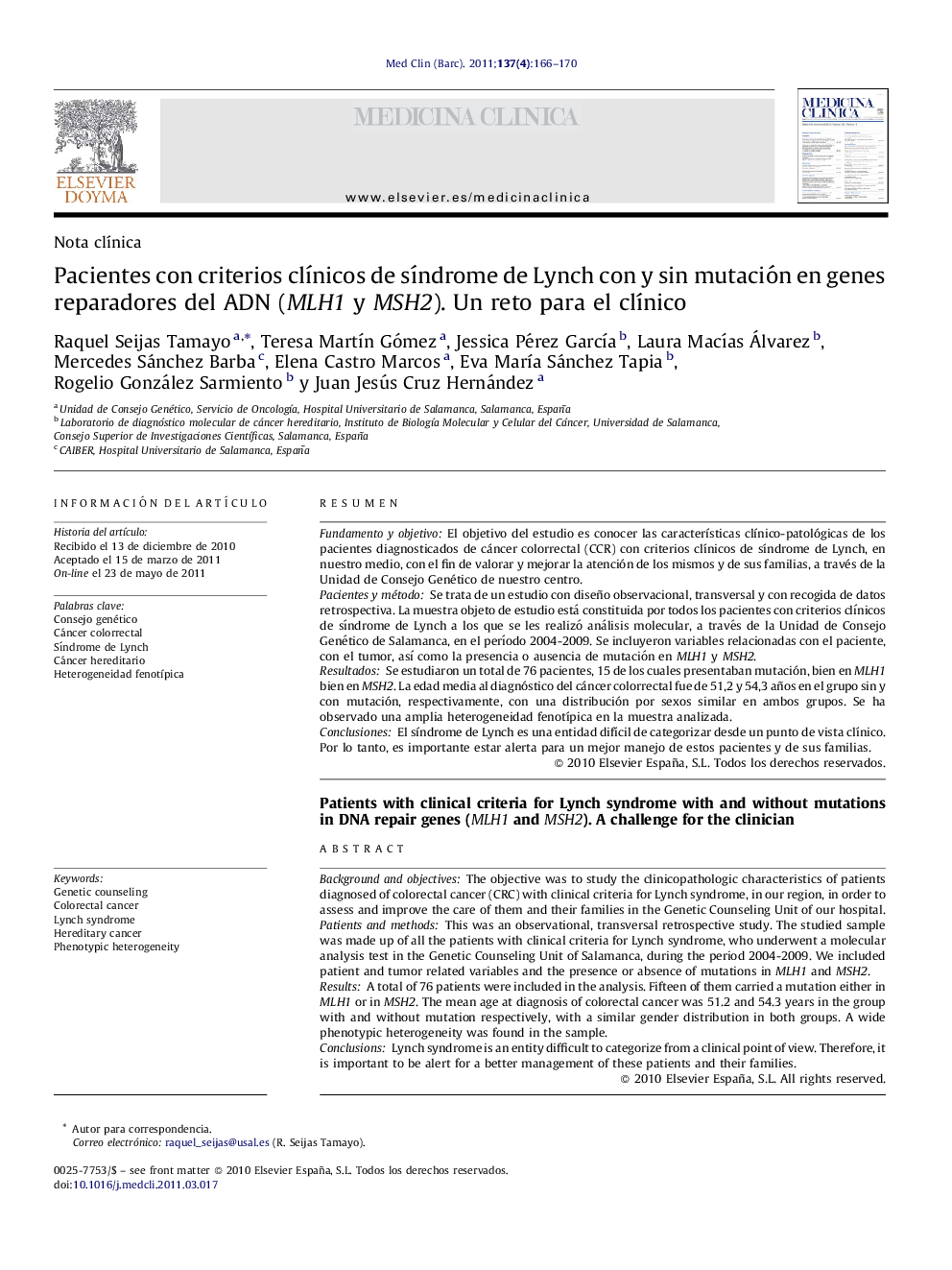| Article ID | Journal | Published Year | Pages | File Type |
|---|---|---|---|---|
| 3800832 | Medicina Clínica | 2011 | 5 Pages |
ResumenFundamento y objetivoEl objetivo del estudio es conocer las características clínico-patológicas de los pacientes diagnosticados de cáncer colorrectal (CCR) con criterios clínicos de síndrome de Lynch, en nuestro medio, con el fin de valorar y mejorar la atención de los mismos y de sus familias, a través de la Unidad de Consejo Genético de nuestro centro.Pacientes y métodoSe trata de un estudio con diseño observacional, transversal y con recogida de datos retrospectiva. La muestra objeto de estudio está constituida por todos los pacientes con criterios clínicos de síndrome de Lynch a los que se les realizó análisis molecular, a través de la Unidad de Consejo Genético de Salamanca, en el período 2004-2009. Se incluyeron variables relacionadas con el paciente, con el tumor, así como la presencia o ausencia de mutación en MLH1 y MSH2.ResultadosSe estudiaron un total de 76 pacientes, 15 de los cuales presentaban mutación, bien en MLH1 bien en MSH2. La edad media al diagnóstico del cáncer colorrectal fue de 51,2 y 54,3 años en el grupo sin y con mutación, respectivamente, con una distribución por sexos similar en ambos grupos. Se ha observado una amplia heterogeneidad fenotípica en la muestra analizada.ConclusionesEl síndrome de Lynch es una entidad difícil de categorizar desde un punto de vista clínico. Por lo tanto, es importante estar alerta para un mejor manejo de estos pacientes y de sus familias.
Background and objectivesThe objective was to study the clinicopathologic characteristics of patients diagnosed of colorectal cancer (CRC) with clinical criteria for Lynch syndrome, in our region, in order to assess and improve the care of them and their families in the Genetic Counseling Unit of our hospital.Patients and methodsThis was an observational, transversal retrospective study. The studied sample was made up of all the patients with clinical criteria for Lynch syndrome, who underwent a molecular analysis test in the Genetic Counseling Unit of Salamanca, during the period 2004-2009. We included patient and tumor related variables and the presence or absence of mutations in MLH1 and MSH2.ResultsA total of 76 patients were included in the analysis. Fifteen of them carried a mutation either in MLH1 or in MSH2. The mean age at diagnosis of colorectal cancer was 51.2 and 54.3 years in the group with and without mutation respectively, with a similar gender distribution in both groups. A wide phenotypic heterogeneity was found in the sample.ConclusionsLynch syndrome is an entity difficult to categorize from a clinical point of view. Therefore, it is important to be alert for a better management of these patients and their families.
